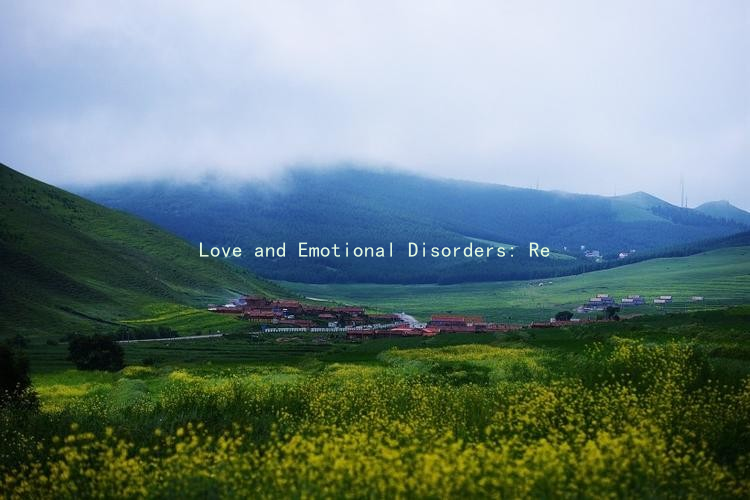Navigating Emotional Dependency in Sexual Relationships: Key Insights for Couples
Navigating Emotional Dependency in Sexual Relationships: Key Insights for Couples
In the realm of romantic relationships, emotional dependency can be both a source of intimacy and a potential pitfall. Understanding the delicate balance between affection and reliance is crucial for couples aiming for a healthy, fulfilling connection. Here are some key insights on navigating emotional dependency within sexual relationships.
1. Recognizing Emotional Dependency:
Emotional dependency occurs when one partner relies heavily on the other for emotional support, validation, and a sense of identity. While it’s natural to seek comfort in your partner, excessive reliance can lead to feelings of suffocation and anxiety. Its important for both partners to identify whether their bond is characterized by mutual support or by one partner being overly dependent.
2. Building Emotional Independence:
Emotional independence is essential for sustaining a healthy relationship. It allows each partner to maintain their individual identities and interests outside the relationship. Encouraging hobbies, friendships, and passions independent of your partner can enhance personal growth and, in turn, enrich the relationship. Sharing experiences outside the romantic sphere fosters a sense of autonomy that is conducive to mutual respect and admiration.
3. Effective Communication:
Open dialogue about feelings and needs is fundamental in any relationship. Couples should cultivate an environment where they can express their concerns and emotions freely without fear of judgment or retribution. Using I statements can help communicate feelings without sounding accusatory. For instance, saying I feel anxious when you’re not responsive is more constructive than You never pay attention to me. This approach not only fosters understanding but also strengthens emotional connections.
4. Setting Healthy Boundaries:

Healthy boundaries are essential in preventing emotional dependency from becoming excessive. Couples should discuss their needs for space and togetherness, establishing guidelines that respect both partners comfort levels. It’s important to recognize when one partner’s needs might inadvertently infringe on the others sense of autonomy. Setting boundaries around communication, personal time, and social interactions can help maintain balance and prevent resentment.
5. Fostering Trust and Security:
Trust is the foundation of a secure relationship. Couples should actively work to build trust through honesty, transparency, and consistency in their actions. When both partners feel secure, the need for emotional dependency diminishes, creating room for a healthier attachment. Trust can be nurtured through small commitments, like being punctual for dates or following through on promises, which collectively reinforce the bond.
6. Seeking Professional Guidance:
Sometimes, emotional dependency can unravel deeper issues rooted in past experiences or insecurities. Couples may benefit from seeking professional help, such as therapy or counseling, to navigate these complexities. A professional can provide tools to strengthen emotional resilience and facilitate more effective communication strategies.
7. Celebrating Interdependence:
While emotional independence is crucial, it is equally important to celebrate the interdependence that develops in a loving relationship. Recognizing that a healthy relationship involves both partners supporting each other while maintaining their individuality is essential. Encourage each other to thrive as individuals while being a steadfast source of support.
In conclusion, navigating emotional dependency in sexual relationships requires awareness, communication, and a willingness to grow both individually and together as a couple. By fostering emotional independence, establishing healthy boundaries, and building trust, couples can create a secure, thriving partnership that stands the test of time. Ultimately, a balance of dependence and independence will lead to stronger, more satisfying relationships where both partners can flourish.





